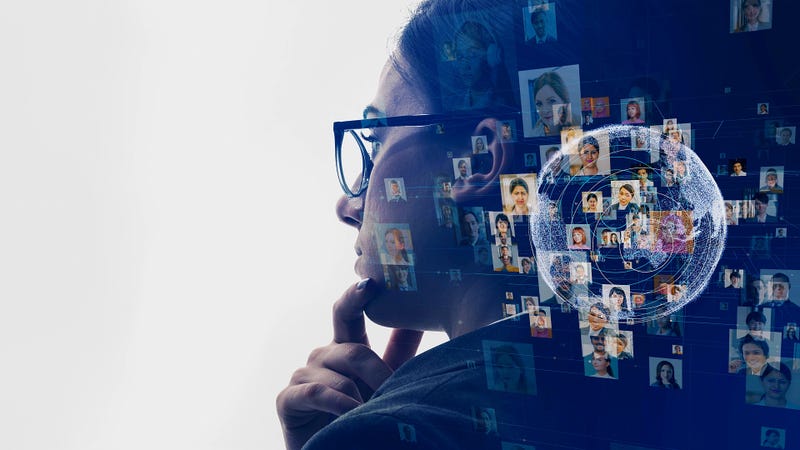
PHILADELPHIA (KYW Newsradio) — The artificial intelligence of tomorrow depends on what we put into it today: our values, our priorities, our humanity. A researcher at the University of Pennsylvania says we should take deliberate action to ensure AI serves society — not just the bottom line.
Think about phone numbers. You remember your own. Probably the number to your parents’ house. But how many more of your family and close friends can you dial by heart? And how many digits will forever be known only to your phone’s contacts app?
"That is one illustration of the fact that we voluntarily delegate ever more to our devices in whichever form they may come," says Dr. Cornelia Walther, senior fellow at Penn.
She's making the point that — well, I’ll let her finish the thought.
"Let’s face it: The human being is lazy," she says.
🎧 Full interview | 14 min.
Don’t take umbrage. We’re all in the same boat, and if we can avoid exercising that gray matter, we often do.
"But the brain is a muscle. Use it or lose it," Walther says. "And it’s very easy to become ever more reliant on our always-on, always-friendly, always-available artificial assistant."
Walther, a visiting scholar at Penn Dental Medicine’s Center for Integrative Global Oral Health and Wharton’s Neuroscience Initiative, is a global thought leader on AI. (Her new book is “Human Leadership for Humane Technology: The New AI: Agency Ignited.”) But she doesn’t bang the usual drum that artificial intelligence will eliminate all our jobs, nor does she evangelize that AI will solve all our ills.
The truth lies somewhere in the middle, and Walther argues it’s up to us to define what that looks like — to think about it, to advocate for it, to do it — to have "agency amid AI," as she puts it.
"We can’t expect the technology of tomorrow to live up to values that humans of today are not living up to," Walther says. "That is, in a way, a radical invitation to turn 180 degrees around and face our own humanity."
Walther calls it "prosocial AI" — a system designed to bring out the best within itself for people and the planet.
One example: work they’re doing at Penn around AI supporting caregivers of people with disabilities. It’s how Artificial Intelligence can help those most in need first, where Walther believes the focus should be.
"A tool that can open access for people who may currently be excluded, be that from education, be that from health care, be that from communication areas," she says. "But we can’t sit back and relax and wait until there are positive outcomes that come for us."
Artificial Revolution: Is the Future Automation?
"Artificial Revolution: Is the Future Automation?" is an Audacy Conversation special on the impact artificial intelligence has on our everyday lives — and the greater world around us.
It features a mix of expert analysis, original reporting, questions and answers to help you assess where we stand and where we're going ... to the future and beyond.
